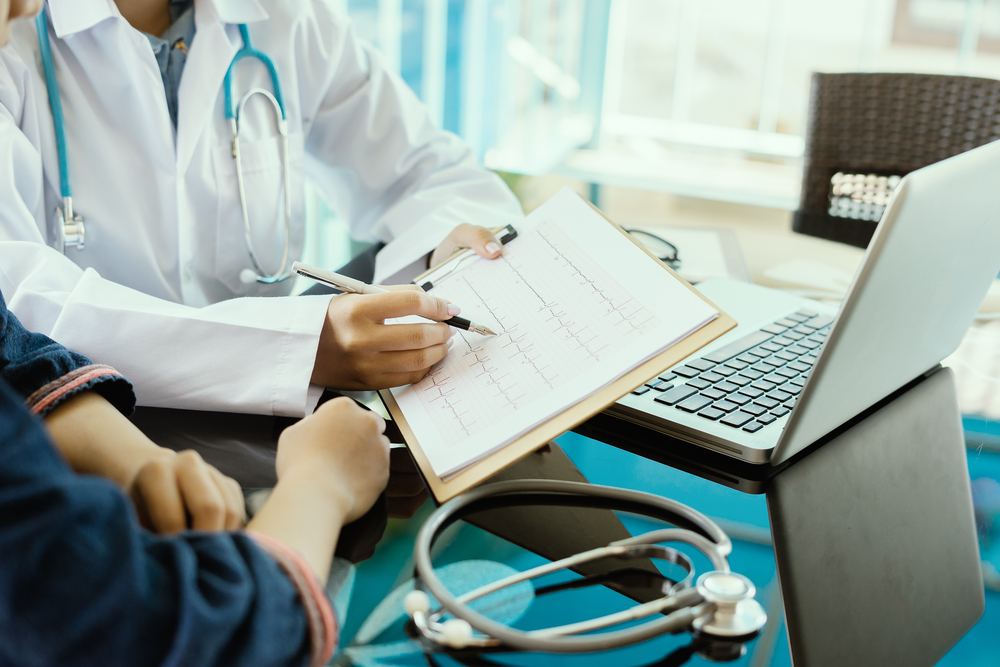Tomorrow, and tomorrow, and tomorrow,
Creeps in this petty pace from day to day,
To the last syllable of recorded time;
~ William Shakespeare – Macbeth, spoken by Macbeth
As the Pandemic washed over our unprotected planet in brutal waves our lives were upended and changed, possibly forever. We tried to continue our lives as they were before, but that was impossible. I am a professor of medicine at Yale and my life changed abruptly on March 10, 2020 @ 7:51 pm with an email from the President of the university that outlined the new realities for students and faculty. My clinics all became telemedicine clinics and interactions with patients became Zoom-like. There were innumerable Zoom meetings to prepare for the onslaught we knew was coming and innumerable Zoom meetings during the onslaught. Most of the doctors who were to take care of the COVID patients were in my department (Pulmonary, Critical Care and Sleep Medicine). The war had begun!
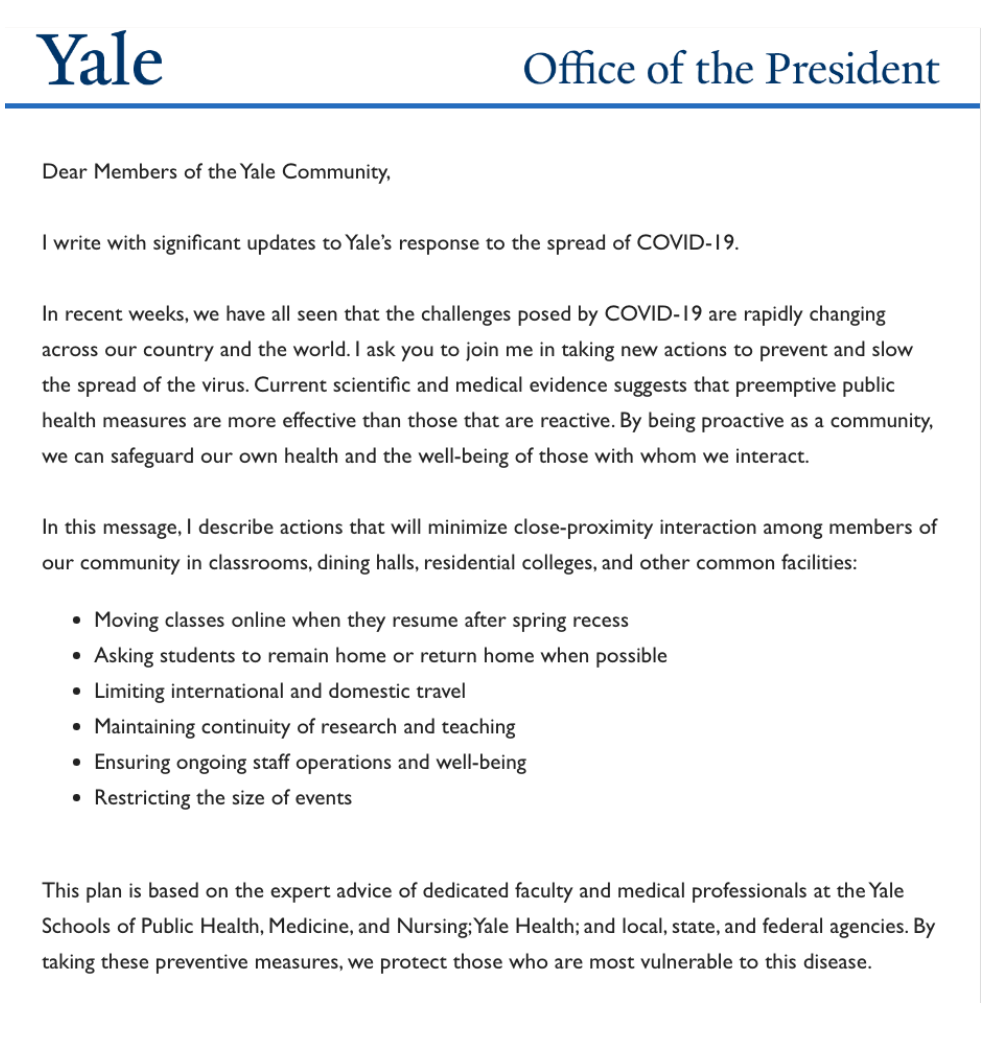
My life as a doctor
I had been a doctor since 1971. I have always loved the interaction with patients. Right after the email arrived, I was instructed to work from home. Everything changed. Within days I was having telehealth clinics with my patients: I with an iPad; they using a smart device. Many could not master the technological hurdles. For many, however, it was much more convenient. Instead of losing a half day in clinic, the virtual visit lasted 30-40 minutes.
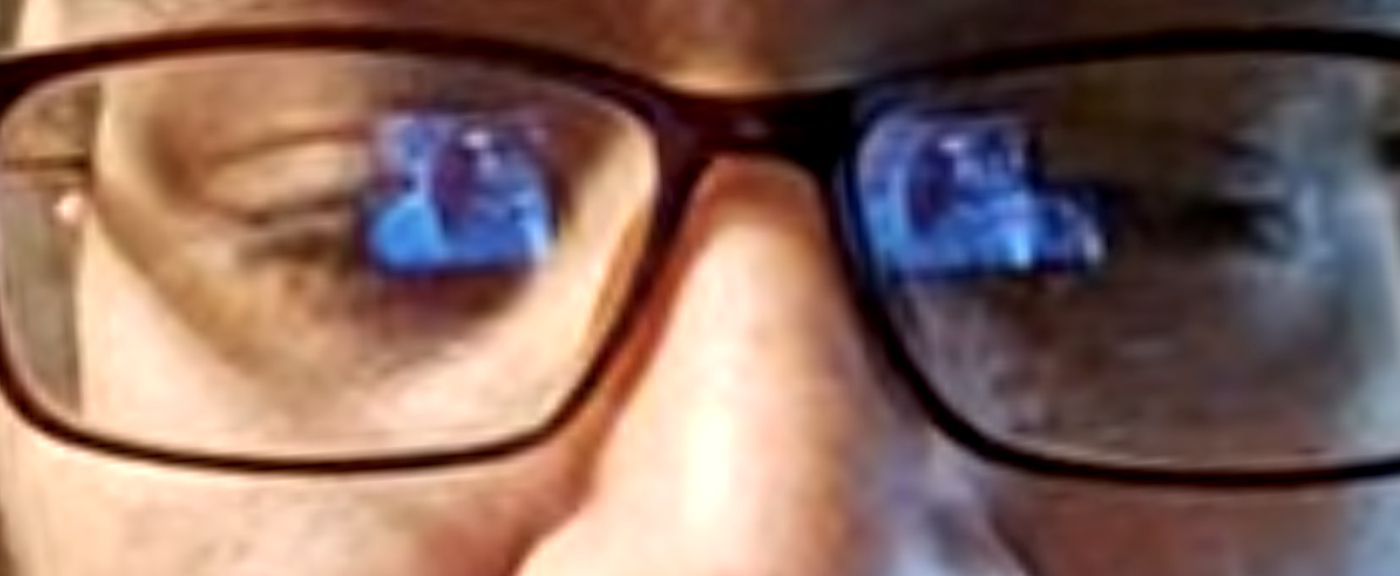
During the telehealth visit, I of course was in my home. Patients were at their homes (in one case, on a yacht. Yes, a yacht), or in vehicles (parked or moving) or at work.Some of the latter interactions were memorable: the on-line shopper pushing a cart and taking products off shelves at Costco; the person assembling an aircraft in a factory. We always ended the interactions with “Stay safe”. One irony is that in the actual clinic both patient and doctor were wearing masks or PPE, and could not actually see each others faces, on virtual visits I could see the patient, they could see me. A lesson that emerged quickly was that such visits were likely here to stay.
Some, what were supposed to be routine virtual consultations, turned out to present an unexpected shock and challenge. The paralyzed young patient living in a small town in another state who had a life threatening condition who needed a ventilator. It was obvious from his symptoms. Although we were provided temporary medical licenses to practice in other states (Massachusetts and New York) how can one arrange for a ventilator when one does not even have something as simple as a blood oxygen measurement? One starts to do stuff “out of the box” when acute medical necessity is facing the patient. I won’t go into detail here, but my colleagues and I were able to get the patient a home ventilator. Another patient appeared at the virtual visit wearing oxygen; she was in a hospital bed being treated for COVID, and struggling to breathe. Then, there was the patient who came to the virtual visit for a routine followup to see how he was doing on CPAP for his sleep apnea. He was still getting over the ravages of COVID. I suddenly realized that patients on such machines could spread the virus. That new issue needed deep exploration.
The pandemic had changed every aspect of my life as a doctor.
My life as a medical academic
In the early days of COVID at my university, there was a great deal of preparation for the unknown that was coming. This was before there was a single case in the hospital. It was my colleagues in Pulmonary Critical Care and Sleep Medicine who would be heavily involved in treating the sickest patients. We had all seen the images from Italy of patients on ventilators dying of respiratory failure. There were many Zoom meetings of our entire faculty to plan for what was going to happen; were there enough ICU rooms, ventilators, PPE, caregivers? How were we going to protect our faculty and their families because they would be exposed to the sickest COVID patients?
Because I was considered high risk I had been instructed to work from home. And work I did! I worked much harder than normal. Perhaps it was an overreaction or perhaps even guilt. While I was working from home my colleagues in the armor of PPE were to face danger, death, psychological trauma in the ICU. Somehow a fragment of a poem by Rudyard Kipling popped into my mind:
Cannon to right of them,
Cannon to left of them,
Cannon in front of them
Volleyed and thundered;
Stormed at with shot and shell,
Boldly they rode and well,
Into the jaws of Death,
Into the mouth of hell
Rode the six hundred.
I helped secure ventilators, arranged donation of oximeters, had many meetings about how to safely ventilate patients without tubes in their tracheas. A colleague at Harvard and I designed a breathing circuit that minimized viral shedding for patients being treated with CPAP for sleep apnea. We presented our findings at Zoom meetings with hundreds in the audience and arranged other Zoom meetings about COVID and sleep medicine. I gave Zoom talks about insomnia and COVID to Yale faculty, Yale students and outside groups including a neurology conference in Morocco and a meeting in Shanghai. All the while editing a textbook, mentoring trainees, and preparing to teach my fall semester course (Mystery of Sleep) via Zoom. In the back of my mind, was the thought, “What if I got COVID and couldn’t finish these tasks?”
The pandemic had changed every aspect of my life as an academic.
My life at home
The images in the media were brutal. Crashing ICU’s, refrigeration trucks for the dead, death counts. Lucky does not accurately describe my situation. My family is well; all have been super careful. We have food; my wife was in charge of this; we shop curbside pickup. We manage to keep in touch; we use Zoom, Facetime, and Google Duo to stay in touch with family and friends. There have been many Zoom birthdays, Zoom getogethers. Zoom religious services, Zoom passover seders, Zoom funerals, Zoom shivas, Zoom gravestone unveilings. My grandchildren were growing up on an iPad screen. What must they be thinking when they throw grandma and grandpa a kiss? Family members sheltered-in-place in our house for months because their apartments could not work for working from home.
Like many (perhaps now, most) families, we have been directly touched by COVID. Two friends died of COVID. Two friends survived ICUs (respiratory failure) for COVID. One friend died because a routine medical procedure was delayed by COVID. Our son-in-law’s grandfather died of COVID. Our next door neighbor’s son got COVID: over 20 residents of the nursing home where he worked died. Our daughter in law consults remotely for nursing homes; over 60 residents in them have died. No wonder we are so careful.
Time moves slowly. One loses track of time. To kill time and perhaps to deal with anxiety one does what would have been considered crazy a year ago: baking dozens of sourdough breads; dealing with stuff stored and not dealt with in decades.
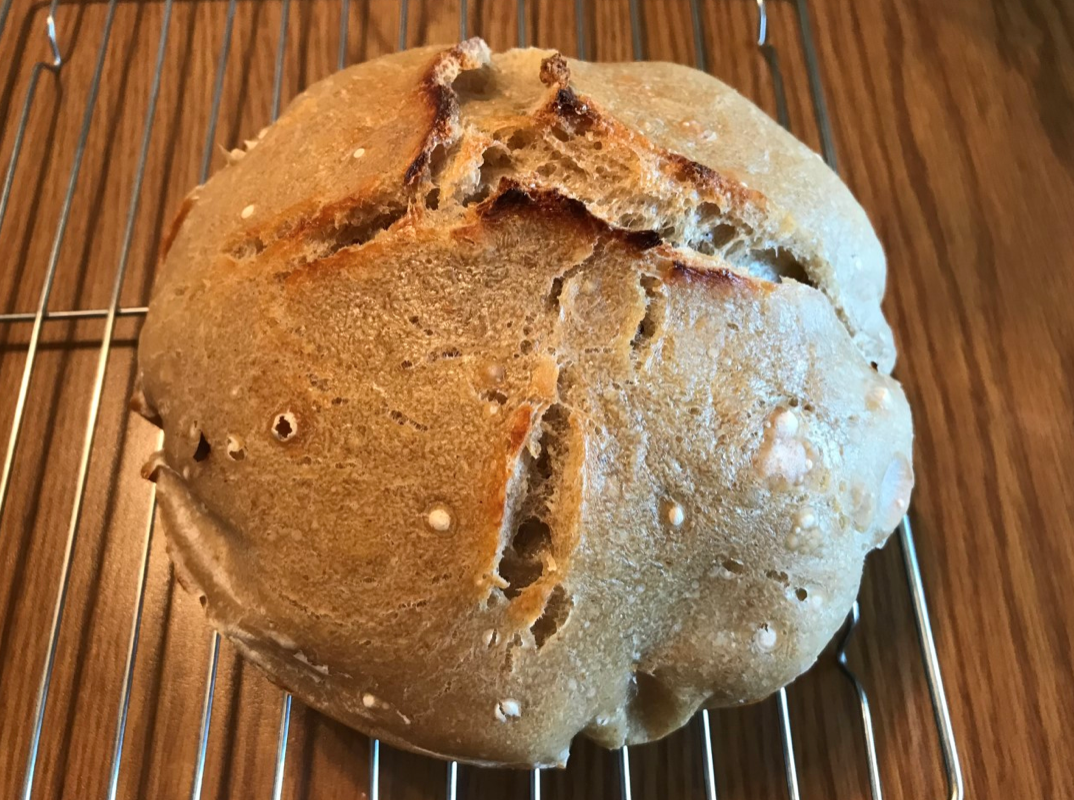
We moved to the US from Canada fourteen years ago. We had boxes and boxes and boxes of unpacked items (books clothing, old home movies, photographs, LP records, obsolete electronic equipment) and an over 100 year old Persian carpet in our basement. Suddenly we started to think about unfinished business.
What if we should perish? Who would deal with this unfinished business. When we had any contact with our children we would present them with many boxes of their stuff (back to their kindergarten days). I had more than a hundred pounds of documents shredded: really old financial records, health records, drafts of manuscripts. We brought many large bags of clothing and more than 20 boxes of books to our local thrift shop. I brought old computers to be recycled at our local Staples store. On one, I came across an old file I had forgotten; a novel I had written more than 30 years ago.
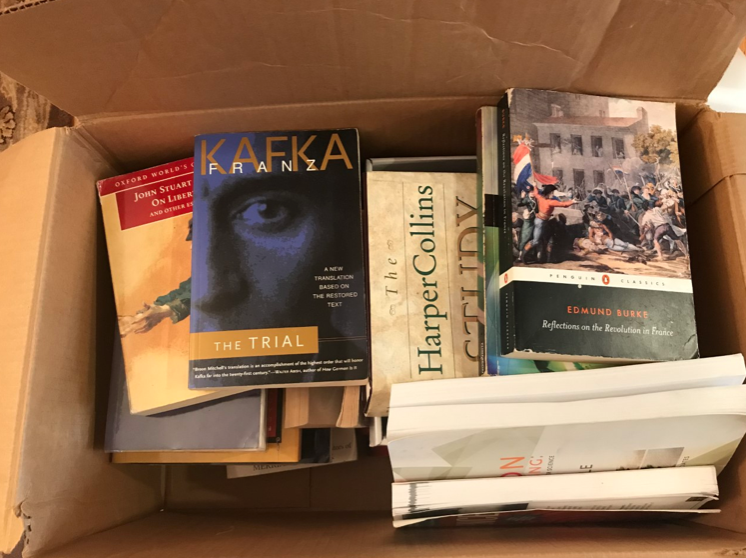
The idea of unfinished business and my possible mortality hit me like a truck when I came across the file. Here was work I had completed so long ago and had planned to publish one day. One day was here. I placed “The Man who Couldn’t Stay Awake” to be printed on demand on Amazon.
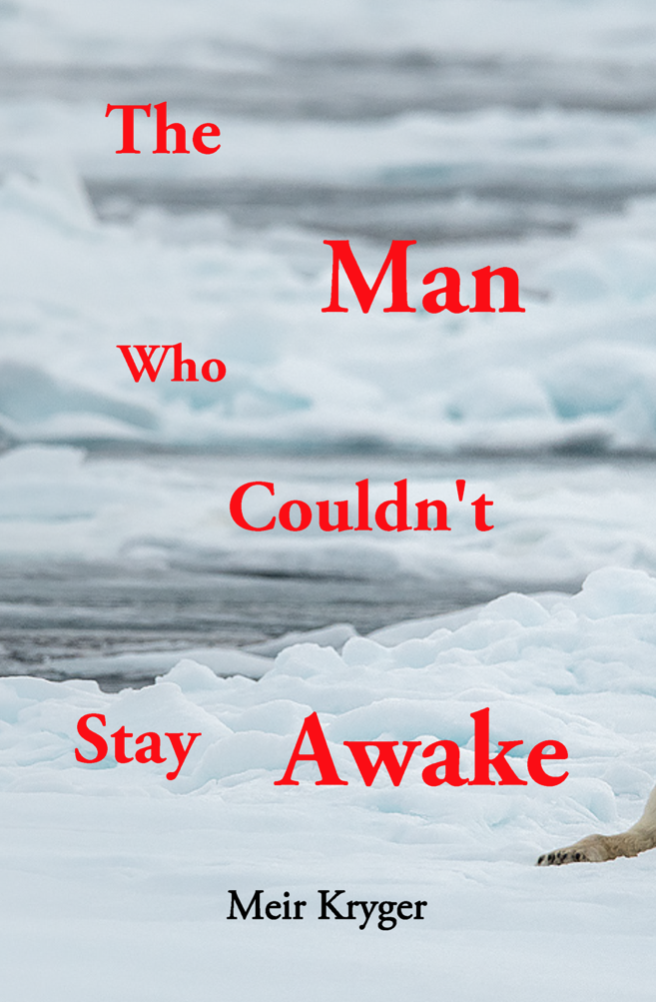
Perhaps the most gratifying completed business was the story of the Persian rug. It was huge. It had been in my wife’s grandmother’s home in Steubenville, Ohio. It had travelled from Persia, to Steubenville, Ohio, to Winnipeg, Manitoba to Hamden, Connecticut. We learned that it was a Sarouk rug from about 1915. Our son had just purchased a house. He had accepted it. It is perfect in his home!
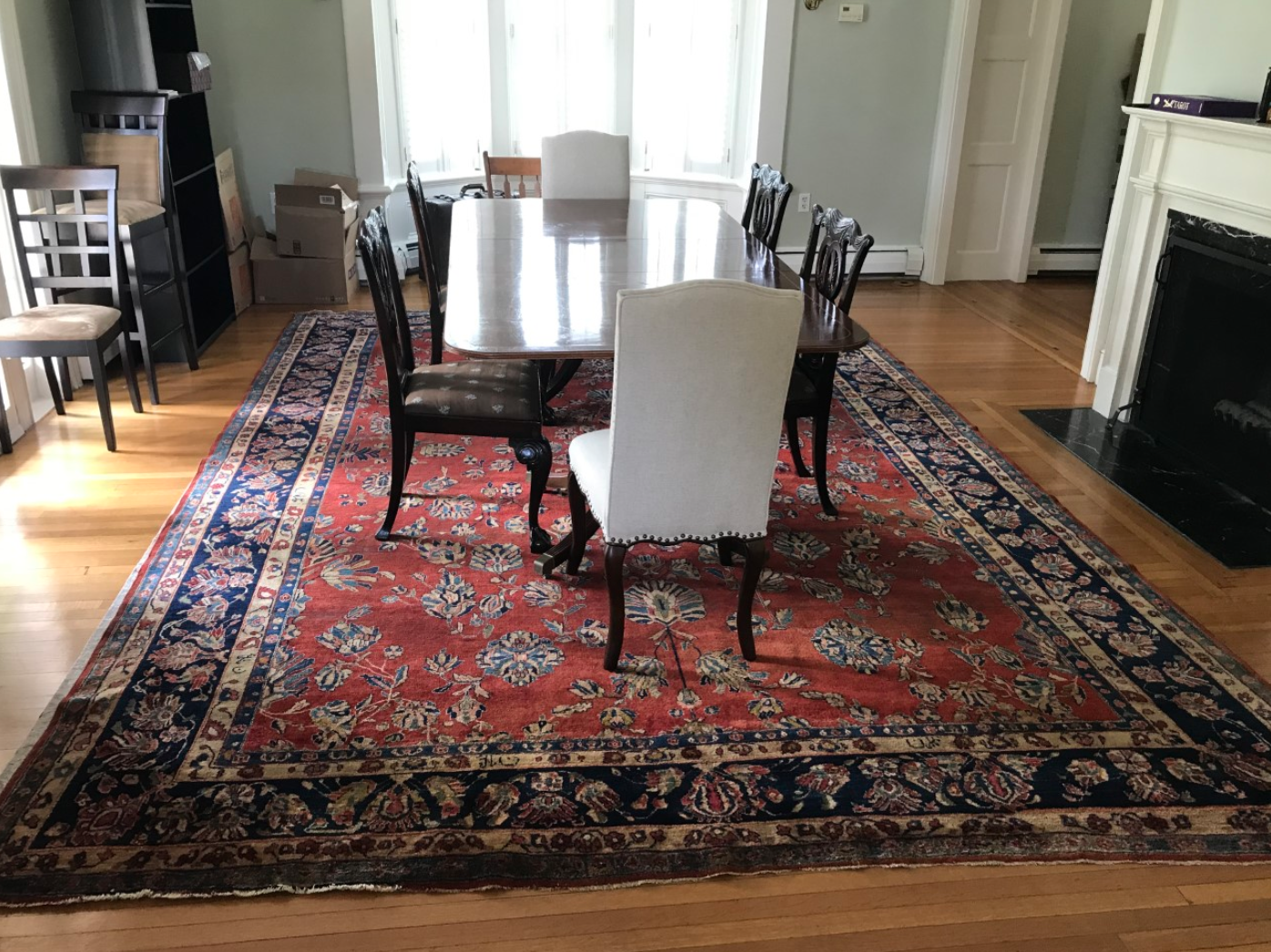
I have still a few boxes to clean out. Maybe I will find more unfinished business. By then, I hope that the pandemic will have ended.
The pandemic had changed every aspect of my life. It has probably changed the life of almost everyone on our planet. The pandemic will end. They always do. After its hour upon the stage, the virus will be heard no more.
Out, out, brief candle!
Life’s but a walking shadow, a poor player,
That struts and frets his hour upon the stage,
And then is heard no more.
~ William Shakespeare – Macbeth, spoken by Macbeth


